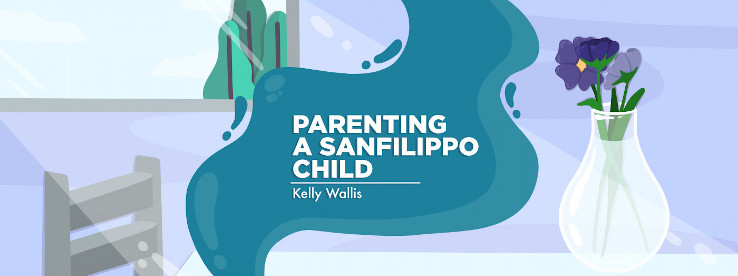As a worried parent of a terminally ill child, how much fear is too much?
The challenge of balancing rational awareness with more emotional anxiety
Written by |

Raising a child inherently involves worry, and many parents stress most about their children’s well-being and safety. Some parents have more reasons to worry than others. I, for instance, have an adult daughter, Abby, with Sanfilippo syndrome. Since it’s rare and terminal, I feel extra worry.
I’ve written about this subject before, but it’s a constant source of anxiety for me, so here we go again. What I struggle with is this concern: How much worry is enough, and when is it appropriate to worry? I think that plagues me because I fear that worrying all the time will drastically change my outlook on life. I try to live intentionally with positivity and optimism. Worry just throws a wrench into everything.
Life experiences and my ‘worry radar’
Two specific life experiences have caused me to question my “worry radar.” One was when my mother unexpectedly passed away three years ago. I went to her house after she called to say she couldn’t breathe. She’d been ill, but then COVID-19 happened. Although I spoke with her every day, I wasn’t seeing her in person because we were worried about the pandemic.
She was obviously sicker than she let on, and by the time she’d called me, it was too late. I spoke with her on the phone, and 10 minutes later she was gone. I worried when she called me, but I was sure medical treatment would help her and she’d be better. I never imagined that she’d die. It was tragic and unexpected.
The other was related to my cancer, which I’ve had for a little over seven years now. It metastasized to my lungs several years ago and just does not want to go away. Each time a new tumor pops up, it’s treated with chemotherapy, surgery, radiation, or ablation. Last May, my oncologist, while discussing scan results, informed me that I had a small tumor in a lung that was right next to my heart.
Having had many of these calls, I nonchalantly asked how we’d treat it (so I could go on with my life). The doctor said this one was different. The location was such that no treatment option was available except chemotherapy, likely for the rest of my life. I was blindsided. Chemotherapy for the rest of my life? That doesn’t sound like the quality of life I want.
Negative unexpected outcomes cause worry
The commonality in the life experiences I just described is the surprise. Both situations resulted in negative, unexpected outcomes. Well, guess what’s fraught with unexpected outcomes? Sanfilippo syndrome. It causes brain damage that results in all sorts of cognitive and physical declines. And it affects people differently, so no two people with this disease are exactly alike.
That can lead a parent into a hyperaware state, where every little gesture, expression, or sound can cause panic. When Abby stares at something too long, I wonder if she’s having a seizure. If she takes too long to swallow food, I fear she’s starting to lose her ability to swallow. If she’s unstable on her feet, I often think she’s coming to the end of her ability to stand or walk.
Balancing worry and rational thoughts
Herein lies the predicament I face each day. I worry about Abby, but I also try to stay rational. Yes, she’s unstable, but she likely won’t lose her ability to walk overnight. Her decline is inevitable, but it’ll likely be gradual enough that I can seek support when I need it. But there will be a time when her decline is such that it takes her life.
My fear is not worrying enough and being blindsided, as I’ve been before. I guess it’s like balancing your heart and mind. Worry comes from the heart because it’s so emotional, and rationality comes from the mind because it’s based more on fact. How do you balance these two when you’re trying to do the right thing for your terminally ill child? It’s difficult.
There’s no absolute answer or formula for this question. It’s one for the universe, and many parents in my situation can relate to it. Just putting this concern into words is helping me somewhat. For me, balancing worry and rational thinking will always be part of this journey of parenting a child with Sanfilippo syndrome.
Note: Sanfilippo News is strictly a news and information website about the syndrome. It does not provide medical advice, diagnosis, or treatment. This content is not intended to be a substitute for professional medical advice, diagnosis, or treatment. Always seek the advice of your physician or other qualified health provider with any questions you may have regarding a medical condition. Never disregard professional medical advice or delay in seeking it because of something you have read on this website. The opinions expressed in this column are not those of Sanfilippo News or its parent company, Bionews, and are intended to spark discussion about issues pertaining to Sanfilippo syndrome.







Leave a comment
Fill in the required fields to post. Your email address will not be published.